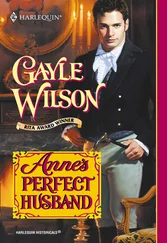Constance Woolson - Anne - A Novel
Здесь есть возможность читать онлайн «Constance Woolson - Anne - A Novel» — ознакомительный отрывок электронной книги совершенно бесплатно, а после прочтения отрывка купить полную версию. В некоторых случаях можно слушать аудио, скачать через торрент в формате fb2 и присутствует краткое содержание. Жанр: Классический детектив, foreign_detective, foreign_prose, на английском языке. Описание произведения, (предисловие) а так же отзывы посетителей доступны на портале библиотеки ЛибКат.
- Название:Anne: A Novel
- Автор:
- Жанр:
- Год:неизвестен
- ISBN:нет данных
- Рейтинг книги:5 / 5. Голосов: 1
-
Избранное:Добавить в избранное
- Отзывы:
-
Ваша оценка:
- 100
- 1
- 2
- 3
- 4
- 5
Anne: A Novel: краткое содержание, описание и аннотация
Предлагаем к чтению аннотацию, описание, краткое содержание или предисловие (зависит от того, что написал сам автор книги «Anne: A Novel»). Если вы не нашли необходимую информацию о книге — напишите в комментариях, мы постараемся отыскать её.
Anne: A Novel — читать онлайн ознакомительный отрывок
Ниже представлен текст книги, разбитый по страницам. Система сохранения места последней прочитанной страницы, позволяет с удобством читать онлайн бесплатно книгу «Anne: A Novel», без необходимости каждый раз заново искать на чём Вы остановились. Поставьте закладку, и сможете в любой момент перейти на страницу, на которой закончили чтение.
Интервал:
Закладка:
Dr. Douglas's study was old, crowded, and comfortable; that is, comfortable to those who have consciousness in their finger-ends, and no uncertainty as to their feet; the great army of blunderers and stumblers, the handle-everything, knock-over-everything people, who cut a broad swath through the smaller furniture of a room whenever they move, would have been troubled and troublesome there. The boys were never admitted; but Tita, who stepped like a little cat, and Anne, who had a deft direct aim in all her motions, were often present. The comfort of the place was due to Anne; she shook out and arranged the curtains, darned the old carpet, re-covered the lounge, polished the andirons, and did all without disturbing the birds' wings, the shells, the arrow-heads, the skins, dried plants, wampum, nets, bits of rock, half-finished drawings, maps, books, and papers, which were scattered about, or suspended from the walls. William Douglas, knowing something of everything, was exact in nothing: now he stuffed birds, now he read Greek, now he botanized, now he played on the flute, now he went about in all weathers chipping the rocks with ardent zeal, now he smoked in his room all day without a word or a look for anybody. He sketched well, but seldom finished a picture; he went out hunting when the larder was empty, and forgot what he went for; he had a delicate mechanical skill, and made some curious bits of intricate work, but he never mended the hinges of the shutters, or repaired a single article which was in daily use in his household.
By the careful attention of Anne he was present in the fort chapel every Sunday morning, and, once there, he played the organ with delight, and brought exquisite harmonies from its little pipes; but Anne stood there beside him all the time, found the places, and kept him down to the work, borrowing his watch beforehand in order to touch him when the voluntary was too long, or the chords between the hymn verses too beautiful and intricate. Those were the days when the old buckram-backed rhymed versions of the psalms were steadfastly given out at every service, and Anne's rich voice sang, with earnest fervor, words like these:
"His liberal favors he extends,
To some he gives, to others lends;
Yet when his charity impairs,
He saves by prudence in affairs,"
while her father followed them with harmony fit for angels. Douglas taught his daughter music in the best sense of the phrase; she read notes accurately, and knew nothing of inferior composers, the only change from the higher courts of melody being some of the old French chansons of the voyageurs, which still lingered on the island, echoes of the past. She could not touch the ivory keys with any skill, her hands were too much busied with other work; but she practiced her singing lessons as she went about the house – music which would have seemed to the world of New York as old-fashioned as Chaucer.
The fire of logs blazed on the hearth, the father sat looking at his daughter, who was sewing swiftly, her thoughts fixed upon her work. The clock struck eleven.
"It is late, Anne."
"Yes, father, but I must finish. I have so little time during the day."
"My good child," said Douglas, slowly and fondly.
Anne looked up; his eyes were dim with tears.
"I have done nothing for you, dear," he said, as she dropped her work and knelt by his side. "I have kept you selfishly with me here, and made you a slave to those children."
"My own brothers and my own little sister, father."
"Do you feel so, Anne? Then may God bless you for it! But I should not have kept you here."
"This is our home, papa."
"A poor one."
"Is it? It never seemed so to me."
"That is because you have known nothing better."
"But I like it, papa, just as it is. I have always been happy here."
"Really happy, Anne?"
The girl paused, and reflected a moment. "Yes," she said, looking into the depths of the fire, with a smile, "I am happy all the time. I am never anything but happy."
William Douglas looked at her. The fire-light shone on her face; she turned her clear eyes toward him.
"Then you do not mind the children? They are not a burdensome weight upon you?"
"Never, papa; how can you suppose it? I love them dearly, next to you."
"And will you stand by them, Anne? Note my words: I do not urge it, I simply ask."
"Of course I will stand by them, papa. I give a promise of my own accord. I will never forsake them as long as I can do anything for them, as long as I live. But why do you speak of it? Have I ever neglected them or been unkind to them?" said the girl, troubled, and very near tears.
"No, dear; you love them better than they or I deserve. I was thinking of the future, and of a time when," – he had intended to say, "when I am no longer with you," but the depth of love and trust in her eyes made him hesitate, and finish his sentence differently – "a time when they may give you trouble," he said.
"They are good boys – that is, they mean no harm, papa. When they are older they will study more."
"Will they?"
"Certainly," said Anne, with confidence. "I did. And as for Tita, you yourself must see, papa, what a remarkable child she is."
Douglas shaded his face with his hand. The uneasy sense of trouble which always stirred within him when he thought of his second daughter was rising to the surface now like a veiled, formless shape. "The sins of the fathers," he thought, and sighed heavily.
Anne threw her arms round his neck, and begged him to look at her. "Papa, speak to me, please. What is it that troubles you so?"
"Stand by little Tita, child, no matter what she does. Do not expect too much of her, but remember always her – her Indian blood," said the troubled father, in a low voice.
A flush crossed Anne's face. The cross of mixed blood in the younger children was never alluded to in the family circle or among their outside friends. In truth, there had been many such mixtures on the island in the old times, although comparatively few in the modern days to which William Douglas's second marriage belonged.
"Tita is French," said Anne, speaking rapidly, almost angrily.
"She is more French than Indian. Still – one never knows." Then, after a pause: "I have been a slothful father, Anne, and feel myself cowardly also in thus shifting upon your shoulders my own responsibilities. Still, what can I do? I can not re-live my life; and even if I could, perhaps I might do the same again. I do not know – I do not know. We are as we are, and tendencies dating generations back come out in us, and confuse our actions."
He spoke dreamily. His eyes were assuming that vague look with which his children were familiar, and which betokened that his mind was far away.
"You could not do anything which was not right, father," said Anne.
She was standing by his side now, and in her young strength might have been his champion against the whole world. The fire-light shining out showed a prematurely old man, whose thin form, bent drooping shoulders, and purposeless face were but Time's emphasis upon the slender, refined, dreamy youth, who, entering the domain of doubt with honest negations and a definite desire, still wandered there, lost to the world, having forgotten his first object, and loving the soft haze now for itself alone.
Anne received no answer: her father's mind had passed away from her. After waiting a few moments in silence she saw that he was lost in one of his reveries, and sitting down again she took up her work and went on sewing with rapid stitches. Poor Anne and her poor presents! How coarse the little white shirts for Louis and André! how rough the jacket for Gabriel! How forlorn the doll! How awkwardly fashioned the small cloth slippers for Tita! The elder sister was obliged to make her Christmas gifts with her own hands; she had no money to spend for such superfluities. The poor doll had a cloth face, with features painted on a flat surface, and a painful want of profile. A little before twelve the last stitch was taken with happy content.
Читать дальшеИнтервал:
Закладка:
Похожие книги на «Anne: A Novel»
Представляем Вашему вниманию похожие книги на «Anne: A Novel» списком для выбора. Мы отобрали схожую по названию и смыслу литературу в надежде предоставить читателям больше вариантов отыскать новые, интересные, ещё непрочитанные произведения.
Обсуждение, отзывы о книге «Anne: A Novel» и просто собственные мнения читателей. Оставьте ваши комментарии, напишите, что Вы думаете о произведении, его смысле или главных героях. Укажите что конкретно понравилось, а что нет, и почему Вы так считаете.












